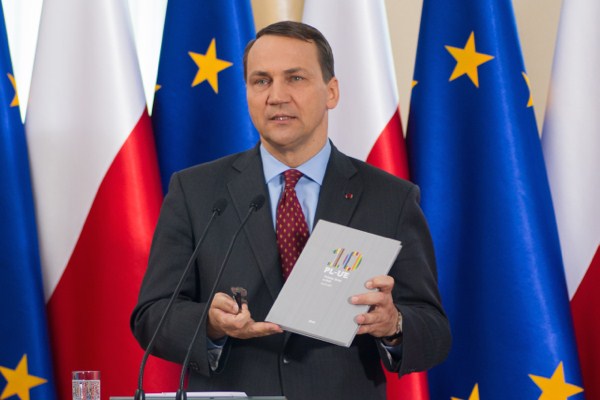Last month, Polish Foreign Minister Radoslaw “Radek” Sikorski left the position he had held since 2007, part of a major cabinet reshuffle by new Prime Minister Ewa Kopacz. His departure comes at a time of great turmoil for European foreign policy. Sikorski had become well-known as one of the more experienced foreign ministers in Europe and one of the toughest critics of Russian President Vladimir Putin. Sikorski is also a longtime favorite in Washington, the subject of glowing media profiles emphasizing his Oxford education, his pro-American leanings and his marriage to Washington Post columnist Anne Applebaum, who writes frequently and critically about Russia.
Although the crisis in Ukraine may be winding down, some critics have charged Kopacz with inexperience in foreign affairs that could be dangerous given the unstable situation in Eastern Europe. Kopacz herself today in her inauguration speech called for a “pragmatic approach” to Russia. Her measured phrasing presents a contrast with the bombastic Sikorski, who once compared a German-Russian pipeline deal to the 1939 Nazi-Soviet pact and who was secretly recorded in June using vulgar language in reference to several key players in Europe. Kopacz’s new appointment to the Foreign Ministry, Grzegorz Schetyna, is seen as a neophyte who has does not speak English and has studiously avoided commenting on the situation in Ukraine.
Schetyna’s appointment “is a move to take him out of contention for party leadership,” says Mitchell Orenstein, an expert on Central Europe at Northeastern University, who adds, “It’s the move of a prime minister who is very inexperienced and playing primarily to domestic considerations, rather than taking account of Poland’s position in the world. It’s like replacing Henry Kissinger with Ted Cruz.”

